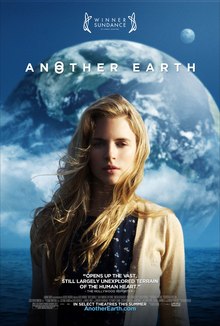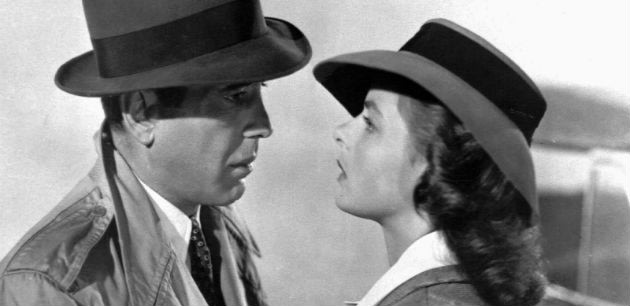One of the things that sometimes bug me, as both a booklover and a movie addict, is watching an adaptation of a novel that I've read and then finding that it has a different ending. Actually, that's not true: It bugs me if the ending is worse. It doesn't bother me at all if the movie ending turns out to be better.
The difference I seem to remember the most--spoiler alert!--happened when I watched the movie The Mist years ago, after reading the Stephen King novella. In the written version, after the survivors of the monster attack at the supermarket escape and manage to also avoid the other creatures in the area, they drive away toward a possible safe zone, still together and alive and hopeful. But in the movie, their getaway car runs out of gas with creatures lurking everywhere, the leader of the survivors kills the four others in the group, including his son, in order to spare them a gruesome death, and--now out of ammunition– he exits the car to be killed himself … when a military team appears out of nowhere and tells him rescuers are on the way. A real downer of an ending, and I've found that many others agree. But in retrospect, it was probably the perfect ending because it created such emotion on the part of the viewer. It was certainly memorable.
Anyhow– you see my line of thinking, here– I have dutifully come up with twenty well-known novels and movie adaptations, all of which I have read and watched, where the endings were changed. There are of course many, many more, but these came to mind.
Here's my list (I'm hoping I've remembered the details correctly)--and, for what it's worth, I've placed an asterisk beside the versions I preferred. Be aware, more spoilers are here, in abundance:
- The Natural — Book version: Baseball star Roy Hobbs strikes out in a crucial game and is disgraced. Movie version*: Hobbs hits a home run that wins the pennant, and is hailed as a hero.
- Cujo — Book: The little boy in the car, Tad Trenton, dies. Movie*: He survives.
- Jaws — Book: Hooper (the young oceanographer) dies. Movie*: Both Chief Brody and Hooper are alive, and swim together to shore.
- The Firm — Book*: Mitch McDeere scams the firm out of millions and escapes to the Caribbean with his family and the money. Movie: Mitch makes a deal with the mafia and with the FBI, destroys the firm, and remains a lawyer, in a different city.
- The Shining — Book*: Jack Torrance blows up the hotel and dies in the explosion, and Dick Hallorann survives. Movie: Jack kills Hallorann and then freezes to death in the maze.
- Double Indemnity — Book: Neff and Phyllis escape together and commit suicide on their way to Mexico. Movie*: Neff and Phyllis shoot each other, and Neff confesses to his boss before dying.
- Breakfast at Tiffany's — Book: The two lovers don't wind up together. Movie*: They do.
- Hannibal — Book: Lecter and Clarice run off together. Movie*: Lecter escapes and leaves Clarice behind.
- The Shawshank Redemption — Book: Red is searching for Andy following their prison break. Movie*: Red finds and joins Andy in Mexico.
- Strangers on a Train — Book: Guy kills Bruno's father and goes to prison. Movie*: Bruno dies at the amusement park and Guy is cleared of his wife's murder.
- Forrest Gump — Book: Jenny marries someone else, and Forrest moves to New Orleans with Lt. Dan. Movie*: Forrest and Jenny get married, she dies, and Forrest raises their son.
- Rebecca — Book*: Manderley burns down and Mrs. Danvers's fate is uncertain. Movie: She dies in the fire.
- Black Sunday — Book*: The blimp carrying the bomb is diverted from the stadium, but the hero dies. Movie: The hero survives.
- The Grapes of Wrath — Book: Sad ending, with the Joad family still suffering. Movie*: Hopeful ending, with the Joads safe for the moment, and pressing on.
- Jurassic Park — Book: The island is destroyed by bombing, and Hammond dies. Movie*: The T-Rex saves everyone from raptors at the welcome center, and Hammond survives.
- The Notebook — Book: The couple reunites and lives. Movie*: The couple reunites and dies peacefully.
- LA Confidential — Book: The villain (Capt. Smith) survives and gets away with his crimes. Movie*: Exley kills Smith in a shootout at the Victory Motel.
- And Then There Were None — Book*: All the guests, and the judge, die. Movie: Vera and Lombard solve the mystery and survive.
- First Blood — Book: John Rambo dies. Movie*: Rambo lives (thus enabling four sequels).
- Planet of the Apes — Book: Hero and his companion escape the planet and go back to Earth. Movie*: Hero discovers that he's been on Earth all along.
I discovered, when I checked the placement of my asterisks, that I seem to prefer either twist endings or happy, neatly-wrapped endings (but not always). My question for you is, do you agree with any of my preferences? What are some novel vs. movie endings that you remember, and which versions did you like, or hate? As I said, I've left out a lot of them.
Okay, back to my books and videos. See you in two weeks.




















